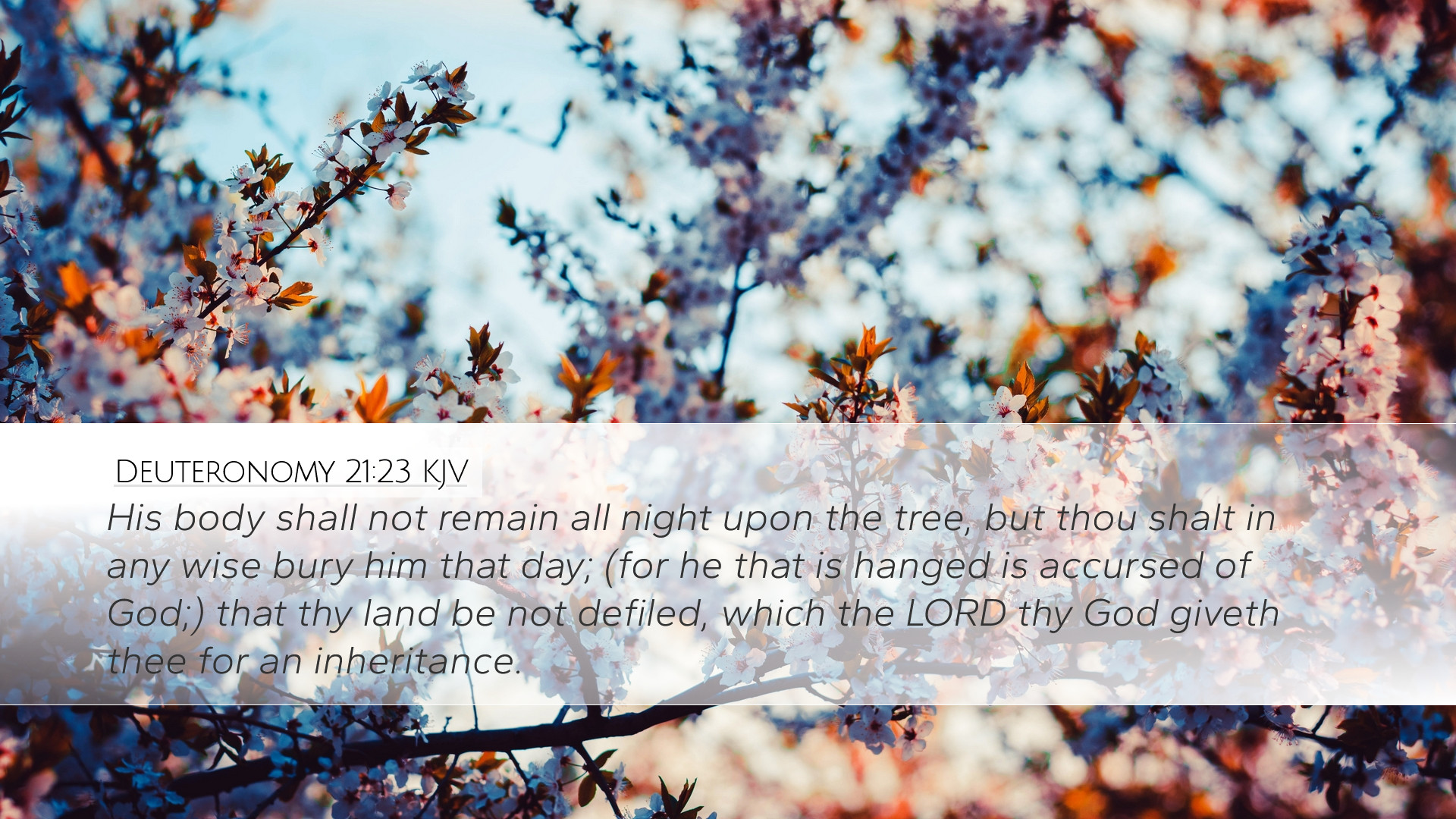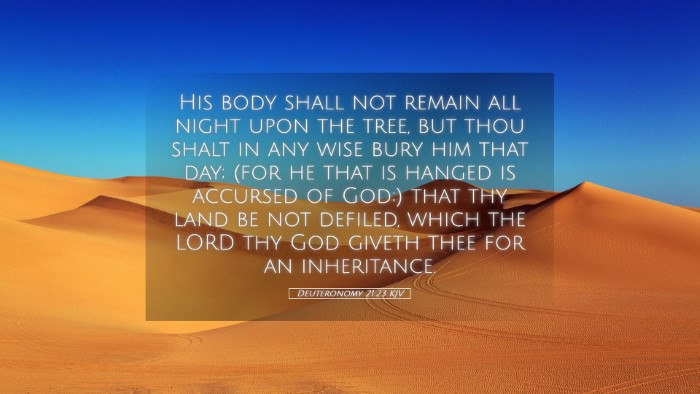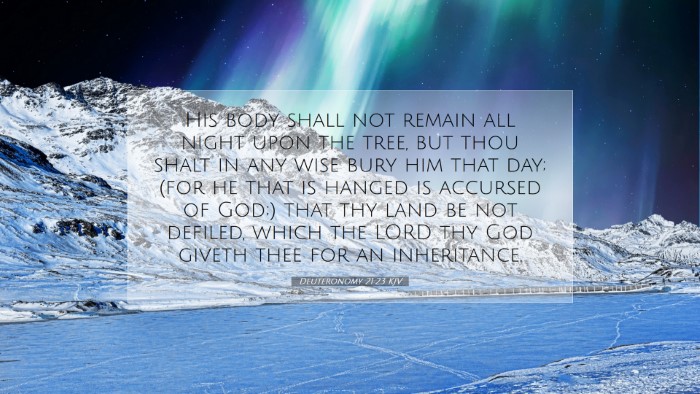Commentary on Deuteronomy 21:23
Verse Analysis:
Deuteronomy 21:23 states, "His body shall not remain all night upon the tree, but thou shalt in any wise bury him that day; (for he that is hanged is accursed of God;) that thy land be not defiled, which the LORD thy God giveth thee for an inheritance."
Introduction
This verse presents theological implications regarding justice, the sanctity of the land, and the nature of punishment in ancient Israelite society. The weight of this scripture rests heavily on its implications for understanding divine justice and the societal responsibilities of the people of Israel.
Historical Context
In the ancient Near East, hanging was a method of execution signifying severe judgment. It served as a public display of shame. The Mosaic Law sought to ensure that the people of Israel adhered to high moral and ethical standards, reflective of God's holiness. The understanding of someone being 'accursed' for this manner of execution indicates a profound belief in the intertwining of social order and divine favor.
Thematic Insights
This verse elaborates on several key themes present within the broader context of Deuteronomy:
- The Nature of Justice: Matthew Henry notes that this command was not merely ceremonial but served to illustrate the severity of rebellion against God’s law. It underscores the need for immediate action to restore both individual and communal integrity.
- Divine Accusation: Understanding that “he that is hanged is accursed of God” reflects a deep theological insight into God’s judgment. Adam Clarke emphasizes that this curse is symptomatic of a deeper covenant violation, leading to societal consequences.
- Respect for the Land: The reference to defiling the land highlights God's concern for the holiness of the Israelite territory, emphasizing that the actions of individuals have broader implications for the entire community. Albert Barnes suggests that a person's wrongful death must be buried quickly to avoid bringing God’s displeasure upon the land.
Matthew Henry's Commentary
Henry explains that the urgency of burying the body reflects God's mercy. The societal shame of having a hanging body could lead to a greater unraveling of societal fabric and disrupt the covenant relationship with God. His commentary centers around the notion that God desires both holy living and the maintenance of communal integrity.
Albert Barnes' Interpretation
Barnes reflects on the implications of the phrase "accursed of God," indicating that this reflects a divine disapproval toward acts against the covenant. He elucidates that burying the body signifies not only respect for the deceased but also an act of community responsibility, offering a tangible means of restoring right order with the Lord.
Adam Clarke's Exegesis
Clarke, providing linguistic insight, discusses the translations and implications of the original Hebrew. He points out that the practice of hanging was often associated with the most heinous crimes, further reaffirming the weight of the curse. His emphasis on the communal response to sin illustrates that individual acts of disobedience extend their reach, influencing the spiritual wellbeing of the larger population.
Theological Implications
The verse invites theological reflection on the themes of judgment, grace, and restoration. It underscores a tension between judgment for wrongdoings and the grace represented by the act of providing a burial.
- Judgment and Mercy: The juxtaposition of judgment (being cursed) and the commanded act of burying reflects a multifaceted view of God’s character. God is both just and merciful, requiring that sin be recognized and repented of while not extending shame indefinitely.
- Covenant Responsibilities: It illustrates the weight of covenantal responsibilities not just on the individual, but the community. The land was a gift from God to be preserved, and its defilement would lead to dire consequences.
- Foreshadowing New Testament Themes: Later Christian interpretations may see this as a foreshadowing of Christ's crucifixion and burial, emphasizing redemption through the death of the "cursed" one on behalf of humanity.
Applying the Text Today
For modern audiences, this text serves as a grave reminder of the seriousness of sin and its repercussions on both the individual and the community. Pastors and theologians may use this passage to address sin within the church, focusing on the importance of confession, community care, and the necessity of timely action in rectifying wrongs.
Conclusion
Deuteronomy 21:23 is a rich verse that speaks profoundly to the nature of divine justice and mercy. Through the lenses of historical context and theological insights from celebrated commentaries, we comprehend the holistic view of God’s directives: to uphold societal integrity, to reflect His character, and to maintain a good relationship with the Lord for future generations.


